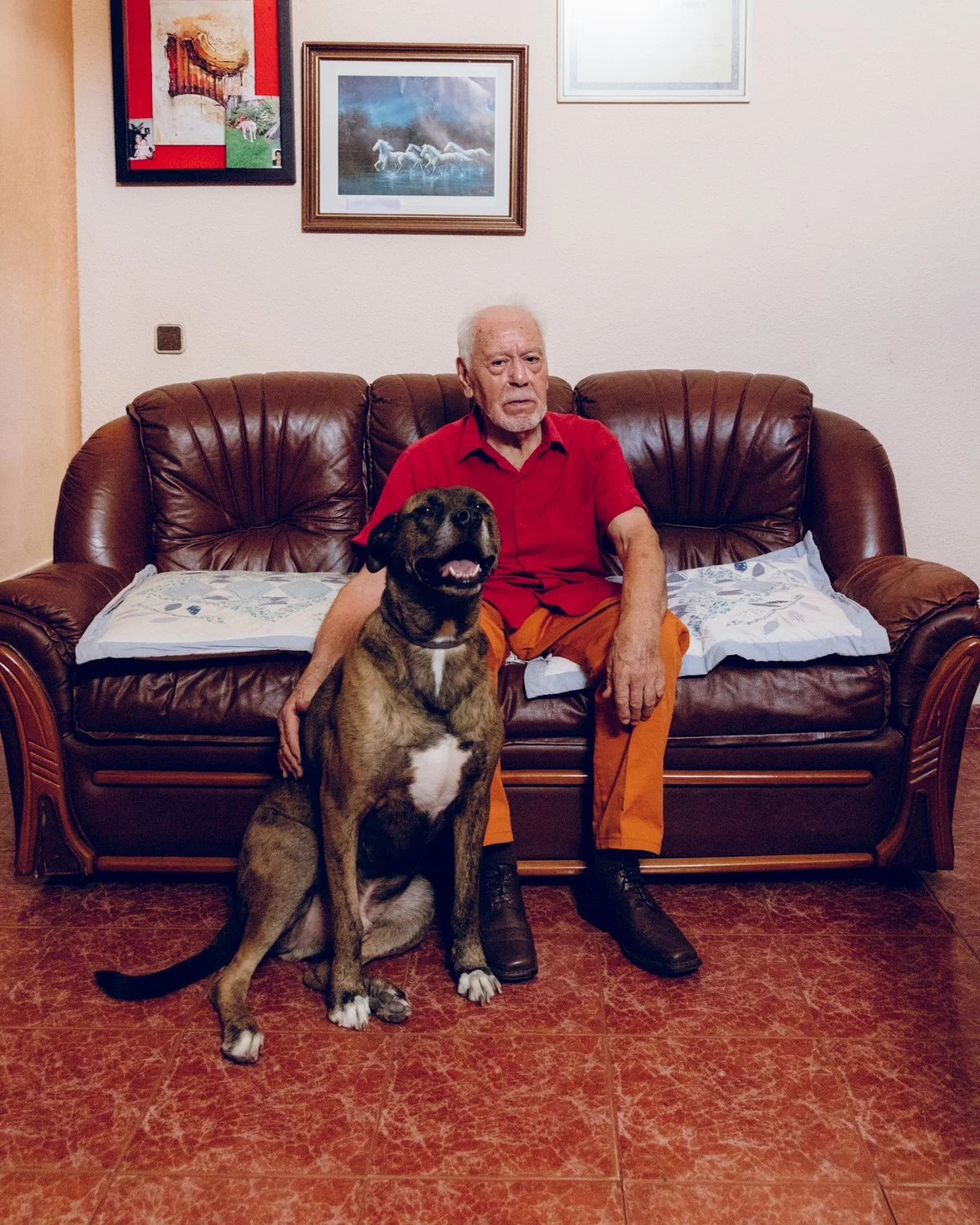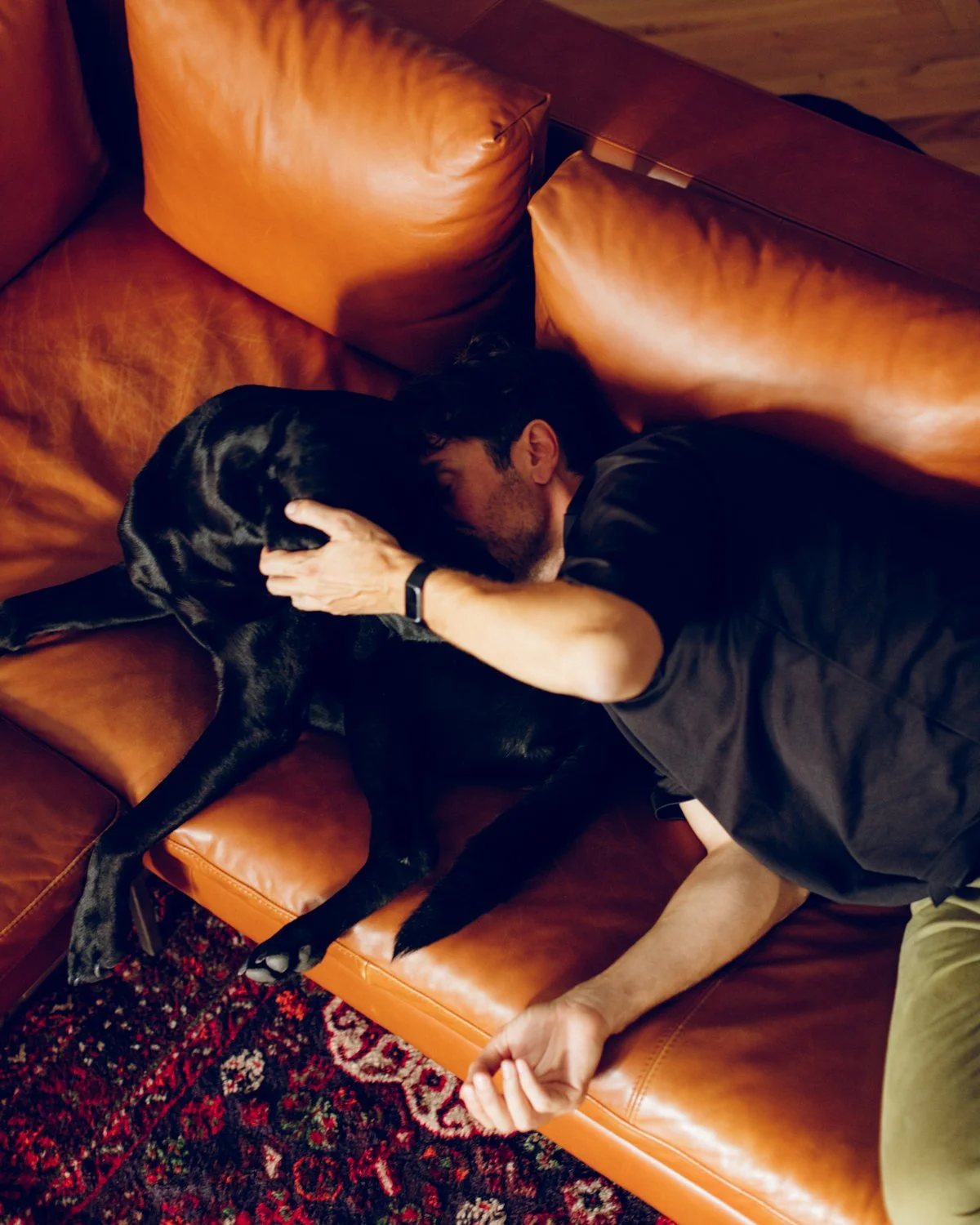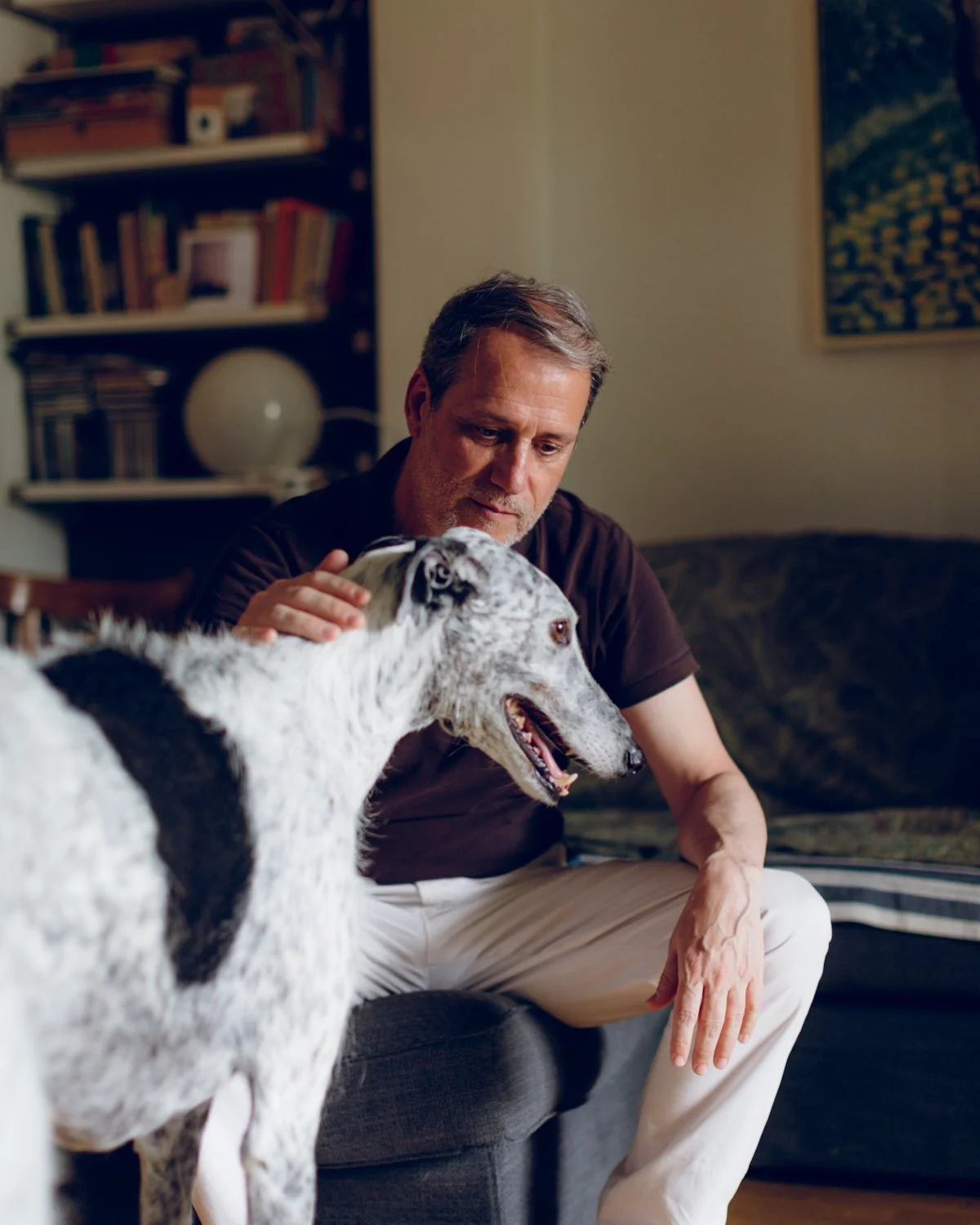Amor de Perros
Taking inspiration from Donna Haraway's seminal work 'Companion Species: A Manifesto for Interspecies Relations,' this photographic series delves deeply into the complex bonds between humans and canines in Madrid, a city where the canine population exceeds that of children. Through portraits captured within domestic settings, the series adeptly captures the nuanced dynamics of multi-species affiliations, affording viewers insight into shared spaces, everyday rituals, and implicit bonds.
Beyond its visual narrative, the series prompts a recognition of agency, emotions, and mutual dependence in companion species, challenging anthropocentrism's exclusive attribution of moral value to humans. In light of escalating climatic disruptions, this recognition assumes particular urgency, underscoring the need to acknowledge the inherent worth of non-human entities and to perceive ourselves as integral to a broader network of relationships that spans species boundaries.
The co-evolutionary trajectory of humans and companion species over epochs underscores reciprocal domestication dynamics. Embedded within this bi-directional process is a pronounced interdependence, where dogs have evolved attributes congruent with human needs, while humans adeptly decipher canine behavioural cues. This phenomenon, labeled "behavioural symbiosis," engenders cognitive alignment, with dogs discerning human cues and humans reciprocally decoding canine behaviors. This alignment transcends the physical, encompassing cultural and emotional dimensions. Dogs' diverse roles—ranging from hunters to companions—significantly influence cultural norms, disrupting conventional notions of kinship and familial structures. This mutualistic interplay prompts a reevaluation of the fundamental underpinnings of human-animal relational dynamics, yielding insights into complex interdependencies that resonate across socio-cultural strata. This relational paradigm holds implications for broader ecosystemic understanding. By illuminating these intimate associations, the series underscores the imperative to transcend hierarchical and exploitative attitudes toward the natural world. It entreats a reorientation of our role, recognising our reciprocal influence upon the environment and positioning ourselves as integral components within it.

































